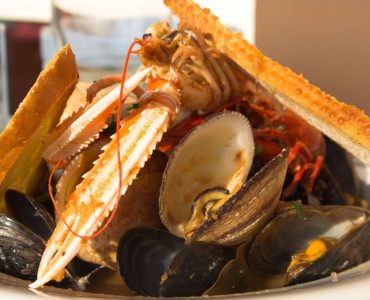Question: Is it possible that a forbidden substance transforms into a lawful – halaal substance? The reason I ask is to learn whether consuming gelatin from pig is lawful or not.
As it is widely known, wine is a forbidden drink according to Islamic law, but it transforms into vinegar through a chemical process, thus becoming lawful to consume.
This physical and chemical transformation is called “istihalah” in Islamic jurisprudence.
Istihalah, from the fiqh (Islamic juripsrudence) point of view is defined as “changing the nature of the defiled or forbidden substance to produce a different substance in name, properties and characteristics.[1]”
Gelatin is a nearly transparent, faintly yellow, odorless, and almost tasteless glutinous substance obtained by boiling in water the ligaments, bones, skin, etc., of animals, and forming the basis of jellies, glues, and the like[2]. Gelatin is known as a deformed molecule of collagen[3]. Denaturation of collagen via boiling and other processes leads its tight helix structure to be collapsed into random coils, which is an incomplete protein named gelatin[4].
Islamic scholars have consensus that gelatin produced out of the collagen of cow and other lawful-to-eat animals is also lawful, but there is controversy on the gelatin produced out of the collagen from pig.
During the production of gelatin, animal tissues are subjected to acid or alkali solvents. Hydrogen bonds and cross-links are partially destructed, and molecules can be divided.[5]
There is controversy among the scholars whether collagen goes through a complete transformation during the production of gelatin, which would be named istihalah then. However, both of the controversial groups accept that collagen changes into a new substance, and neither of them call this new material as “collagen”, rather they call it “gelatin”. The reason of controversy is ratio of the substance that goes through transformation to the total ingredients.
Existence or high ratio of non-transformed substance does not prove that transformation did not occur. It is a fact that the transformation of wine into vinegar is similar. “Wine” can not be called as “juice” after the chemical change anymore because of the substances that went through transformation. Even though the highest ratio of ingredients in juice and wine is water, the lower ratio of ingredients which went through transformation suffices for their names and the rulings on them to be different.
This proves that the ratio of non-transforming substances is not a determiner. So, we do not need to ask how many percent of the collagen went through transformation in order to decide whether transformation (istihalah) occured or not.
In our opinion, collagen transforms into another substance named “gelatin”, thus becoming lawful to consume.
Dr. Yahya Şenol[6]
[1] http://www.halalcertificationturkey.com/en/2015/01/gelatin-transformation-istihala-in-science-and-fiqh/
[2] http://www.dictionary.com/browse/gelatin
[3] Hakan Ayhan, Doğal Polimerler, Bilim ve Teknik: Yeni Ufuklara Biyomalzemeler, Appendix of July 2002, p:11
[4] Ahmed Sakr, Gelatin, Turkish translation by Mustafa Hasbahçeci, Hamid Aydın, Mehmet Çelen; Gimdes, İstanbul, 2008, p:29
[5] Hasan Yetim, “Jelatin Üretimi, Özellikleri ve Kullanımı” 1. Ulusal Helal ve Sağlık Gıda Kongresi
[6]Translation from the book by Dr. Yahya Şenol, KUR’AN ve SÜNNET IŞIĞINDA HELAL GIDA, İstanbul, 2014 , Pages:88-126, 226-233 . The book by Yahya Şenol is his PhD thesis on the subject : “Halaal Food in the Light of Quran and Sunnah”.






Add comment